Jewish History: Israel
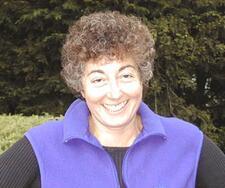
Marilyn Paul
Peace Movement in the United States
Throughout the twentieth century, Jewish women played a major role in American peace organizations and movements. Jewish women have also been in prominent roles advocating for peace between Israel and Palestine, both in the Knesset and with private organizations.
Peace Movements in Israel
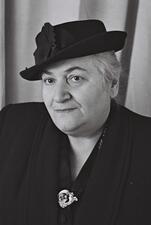
Shoshana Persitz
Born in Russia to wealthy parents, Shoshana Persitz was a passionate Zionist and a leader in education reform. She operated a Hebrew-language publishing house in Russia before making Aliyah to Israel, where she continued in publishing and served three terms in the Knesset.
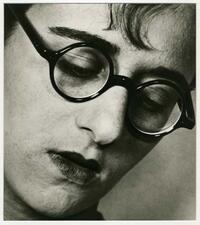
Photography in Palestine and Israel: 1900-Present Day
Although women photographers long struggled for recognition and appreciation in Palestine and Israel, in recent years awareness of their roles and contributions to photograph has increased. The activity of women photographers who focus on gender issues has increased dramatically, while female curators and academics are gaining new perspectives on Jewish female photographers, re-evaluating their role in the development of photography in Israel.
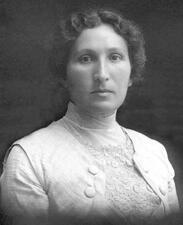
Political Parties in the Yishuv and Israel
Women’s political parties have played an important, though to date poorly acknowledged, role in the social and political history of Israel. They had a significant impact on women’s participation in power center, political and other; they placed a major part in the struggle for women’s right to vote and to be elected; they raised the issue of violence against women, and much more.
Politics in the Yishuv and Israel
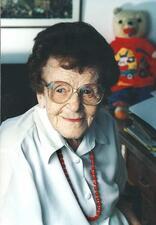
Prose Writing in the Yishuv: 1882-1948
Female Yishuv writers have often been ignored in discussions of Jewish literature from the period. As the sometimes-melancholy tone and escapist themes of their writing show, these women struggled to escape the margins in pre-state Palestine. Nonetheless, the works of these female writers offer important insights into the lives of Yishuv women and paved the way for contemporary women writers.
Flora Sophia Clementina Randegger -Friedenberg
Born in Italy in 1825, Flora Sophia Clementina Randegger-Friedenberg was a persistent educator and writer. She is best known for the publication of her Jerusalem journal, which shared her extraordinary experiences in a way that combined messianic hope and the enlightenment ideals of knowledge and progress.
Dalia Raz
Dalia Raz was an officer in the Israeli Defense Forces who worked to redefine women’s role in the Israel Defense Forces. As an OC (Officer Commanding) in the IDF Women’s Corps, she worked to expand the types of duties women were able to perform while serving in the IDF and encouraged women’s participation across all sectors of the IDF’s operations.
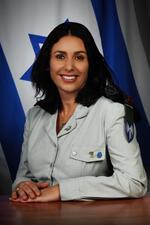
Miri Regev
Miriam “Miri” Regev is a former Brigadier-General in the Israel Defense Forces Spokesperson’s Unit and a current member of the Knesset in the Likud party. As a member of the Knesset, Regev has held government postings as Minister of Culture and Sport and Minister of Transportation and Road Safety.
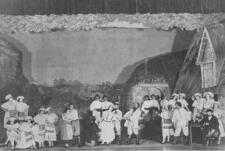
Romanian Yiddish Theater
Romania was a wellspring of the Yiddish theater, as there were Jewish theater troupes in the major Romanian cities and acting troupes traveled throughout the country performing dramas, comedies, musicals, and operettas. Women played a significant role in performing and shaping Romanian Yiddish theater and became known internationally for their work on the Yiddish stage.
Gertrude Rosenblatt
Gertrude Rosenblatt earned praise for the many ways she helped build the State of Israel. From her role as one of the first directors of Hadassah to her direct service for the needy, she was a dedicated and active Zionist.
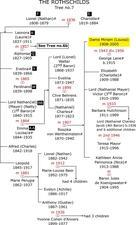
Bethsabée Rothschild
Bethsabée (Hebrew: Batsheva) de Rothschild, the scion of a well-known philanthropic family, helped support numerous activities in the United States and Israel, especially dance, music, and science.She created the Batsheva and Bat-Dor dance companies and was awarded the Israel Prize in 1989 for her special contribution to Israeli society.
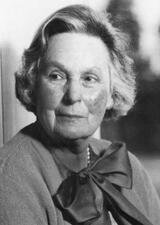
Mathilde Dorothy De Rothschild
Mathilde Dorothy De Rothschild was deeply involved in all facets of Zionist politics. She was an extremely hard worker and proved to be invaluable to Zionist efforts and the Rothschild Foundation.
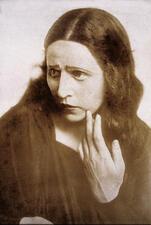
Hanna Rovina
Called the "High Priestess of the Hebrew theater," Hanna Rovina was awarded the Israel Prize for Theater Arts for her contributions to the Habimah stage and her commitment to reviving the Hebrew language. Acting with the Habimah theater, she played many different parts over the course of six decades. A year before her death, Habimah named its large auditorium after her.
Gail Rubin
Russian Immigrants in Israel
Approximately 350,000 Jewish women moved to Israel from the Former Soviet Union after 1989. Among the key issues they faced were occupational downgrading, sexuality and family life, sexual harassment, marital distress, and single-parent families.
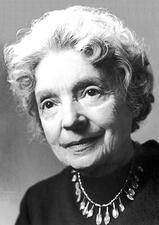
Nelly Leonie Sachs
In 1966 Nelly Sachs became the first German woman to win the Nobel Prize in Literature. After Sachs fled Berlin in 1940, her thirty-year exile in Sweden proved fertile ground for her poetry. She was motivated as a writer by her deep desire to bear witness to the victims of the Holocaust.
Vera Frances Salomons
An elusive figure, Vera Salomon, who belonged to the interconnected network of Anglo-Jewish families known as “the Cousinhood,” is best remembered for founding and funding the L.A. Mayer Museum of Islamic Art in Jerusalem. This was the culmination of a longstanding philanthropic commitment to Jewish life in what would become the State of Israel.

Pnina Salzman
Renowned classical pianist Pnina Salzman was the first Israeli pianist to conquer concert stages in Europe and Asia in the early 1940s, before the establishment of the State of Israel. She also enriched the local music scene with her premieres of Israeli composers, who wrote for her knowing that their work would receive superb interpretation. She won the Israel Prize for her musical achievements.
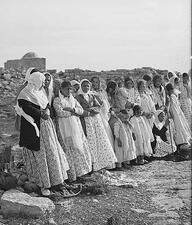
Samaritan Sect
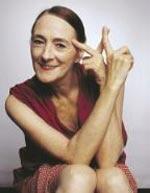
Rina Schenfeld
Faye Libby Schenk
Fay Libby Schenk turned down a promising career as a zoologist to devote herself to Hadassah and other Zionist organizations. She worked her way up at Hadassah and eventually became president, during which time Hadassah began rebuilding its hospital on Mount Scopus and created its Institute of Oncology in Jerusalem.
Ruth Schloss
Through her socio-political artworks, Israeli painter Ruth Schloss (1922-2013) directed the viewer's attention to the human conditions of the downtrodden and marginalized in Israeli society from the 1940s through the early 2000s. She depicted figures and images people usually prefer to ignore, such as the poor and the unprivileged, the working class, newcomers, Mizrahi Jews, Palestinian refugees, the disastrous ruins of the wars in Israel, the Intifada in the occupied territories, women and children, newborns, and the elderly.


